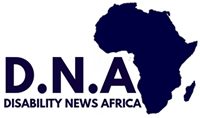
Fifteen per cent of the world’s population do not only experience some form of disability; people with disabilities are faced with various barriers to social and economic inclusion.
These include inadequate access to physical environments and transportation, the lack of assistive technology and equipment, lack of access to public and private services, various negative social and institutional attitudes, discrimination, among others.
As part of efforts to empower Persons with Disability (PWDs) and minimise poverty among them, the government, in 2005, introduced the Disability Fund (currently three per cent) from the District Assemblies Common Fund (DACF) and paid to a separate account with the District Assembly.
The Disability Fund seeks to support income generating activities as a means of economic empowerment, provide educational support, build the capacity of PWDs in the districts to enable them to assert their rights and undertake awareness creation and sensitisation to disability issues, as well as support access to technical aids and other assistive devices and equipment.
The Disability Act, 715, 2006 was also passed to protect the rights of persons with disability, while the DACF for PWDs was institutionalised.
Since then, the assemblies have consistently tried to assist PWDs in their jurisdictions with startups, including equipment, tools and funds, to enable them to eke out a living, take care of medical and educational expenses and not become a burden on their families but contribute to the sustenance of family members.
The equipment, tools and items presented to them have included fridges, sewing machines, shoe making aids, hairdriers, chest freezers, sewing machines, popcorn machines, glass cutting machines, water pumping machines, design machines, knitting machines, bails of second-hand clothes, boxes of footwear, iron sheets, goats and cows for rearing, as well as tricycles to aid their movement and others.
All of these have been provided after consultations with the PWDs and according to the needs of the beneficiaries who fall within the categories of visually impaired, physically challenged, hearing impaired, mentally unstable and multiple disability persons.
Just recently, the Tamale Metropolitan Assembly distributed a number of deep freezers and cash of GH¢112,770 to 60 PWDs in the metropolis to enhance their livelihoods. Other assemblies have also supported PWDs over the years.
However, while the Daily Graphic lauds all the assemblies that have and continue to identify the needs of PWDs in their jurisdictions to offer support from the Disability Fund, it is common knowledge that the fund, over the years, has not achieved its intended purpose because of challenges identified in its management, disbursement procedures and utilisation.
The fact that at every presentation of items to the PWDs the assemblies have expressed worry over the proper utilisation of the tools and equipment, and promised to ensure monitoring, gives cause for concern.
Beneficiaries have also mentioned the untimely release of funds and the inadequacy of the funds, made worse by the rising cost of living, as challenges militating against the effectiveness of the fund.
Further, according to a year-long (2018 to 2019) anti-corruption project implemented by Teere, a community mobilisation organisation, in partnership with the Ghana Federation of Disability Organisations, the institutionalisation of the practice of persistently borrowing from the DACF allocation to PWDs by local districts, for other projects that the fund is not appropriated for, is one of the challenges.
Others are ineffective financial management structures to ensure accountability and transparency in the management of the fund, the lack of knowledge on the provisions of the guidelines for the disbursement and management of the DACF for PWDs, poor mechanism for funds disbursement, weak monitoring of funds utilisation and the lack of advocacy skills among the leadership of PWDs to demand accountability.
These challenges are the reason the Daily Graphic finds the development of a new policy guideline for the management and disbursement of the PWDs’ share of the DACF very timely.
We, therefore, urge the Ghana Federation of Persons with Disabilities, National Council on Persons with Disability, the Ministry of Gender, Children and Social Protection, the Ministry of Local Government, Decentralisation and Rural Development; Office of the Head of Local Government Service and other private partners who contributed to putting the policy together, to ensure it works effectively.
Source: Daily Graphic






